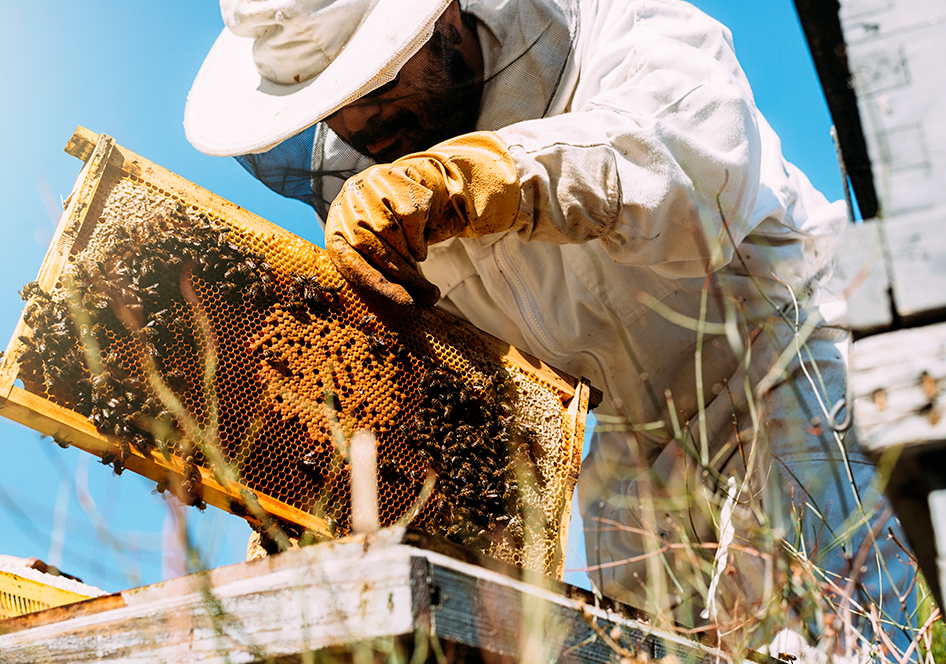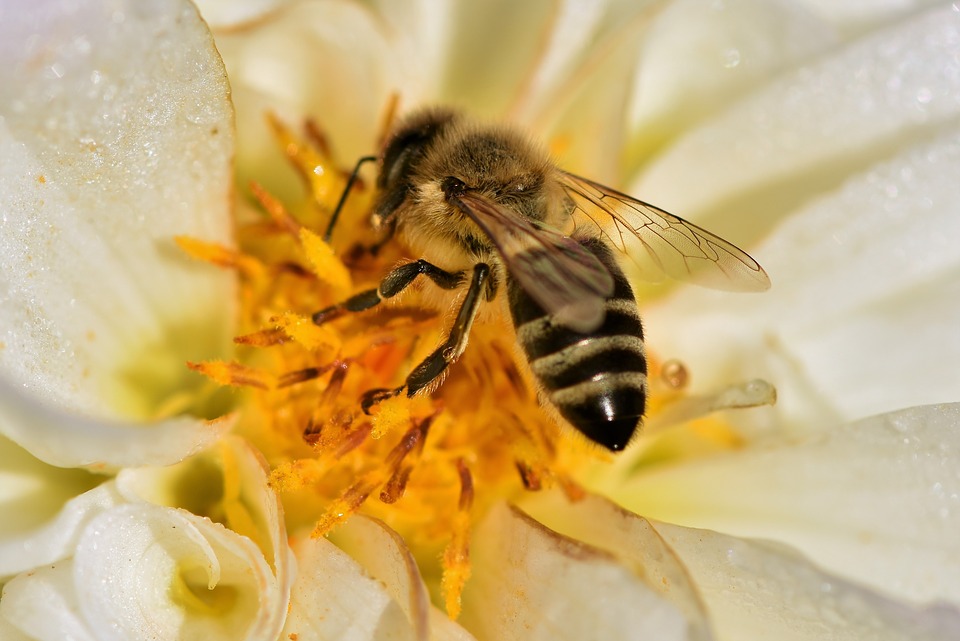We know bees as producers of the delicious food that is honey, without considering that the greatest benefit of their existence is their collaboration in the pollination of a large number of crops, and although there are other pollinating agents such as bats, hummingbirds or butterflies. , the bee, due to its structure, agility and population, is the main and most important pollinator of various foods that develop in the field.
Around 453 crops, of which 237 require direct bee pollination, in addition to multiple varieties of wild flora.
The International Federation of Beekeeping Associations established May 20 as World Bee Day, to highlight its importance in human consciousness.
Worldwide there are more than 20,000 species of bees, more than 85% of them live alone, not in hives.
From the bees that live in hives, the agricultural activity oriented to the breeding of these insects was developed, which constitute a great industry for the country, since Mexico produces honey for national consumption and is also exported mainly to clients such as Germany, the United States, the United Kingdom. , Saudi Arabia and Switzerland
At the end of 2021, Mexico ranked ninth as a honey producer with a production of 63,362 tons, which means a growth of 17 percent compared to the 54,165 tons registered a year ago. In 2020, 26 thousand 77 tons were exported, which places it in 3rd place as an exporter.
The main honey exporting entities are Yucatan, Quintana Roo, Veracruz, Campeche, Chiapas, Jalisco and Oaxaca
According to the Agri-Food and Fisheries Information Service (SIAP), 43,000 beekeepers depend on beekeeping with a national inventory of more than two million hives.
37 percent of the national honey production is produced in the Yucatan Peninsula, and it is Yucatan, the state that has positioned itself, at least in the last 5 years, as one of the main producers and exporters of bee honey in Mexico, with approximately 348 thousand hives, which in 2021 generated a volume of 5 thousand 529 tons, which places it in the second place of production, below Jalisco with 6 thousand 059 tons. In the third production site is Chiapas, followed by Campeche, Veracruz and Oaxaca.
Beekeeping in Yucatan is part of the tradition and cultural heritage of the producers. The region has honey species (the common bee introduced into the country centuries ago by Europe), the Maya and the Melipona, from the latter, its attributes generate medicinal honey. Both are endemic to the region, and safeguarding them constitutes the prosperity and conservation of the region’s rural and food development, since they produce pollen, wax, royal jelly, propolis, cosmetic and medicinal products.
90 percent of Yucatecan honey is exported mainly to the European Union and Saudi Arabia.

The honeys are different according to the region of origin, the type of flowers from which the nectar is extracted, and also according to the species of bees that produce it. Honey from the dzidzilché tree is one of the most valued in the world.
The Ministry of Agriculture and Rural Development, through the National Program for the Control of the African bee, makes available to beekeepers the characteristics that honey must have to comply with the standards of «Good beekeeping production practices» that govern the national and international market:
Color
Smell
Taste
Consistency
Humidity
Acidity
Sugar concentration
Presence of toxic waste
For its part, the government of Yucatan promotes the production of bees through the Queen Bee Production Centers, with the purpose of encouraging beekeeping in the State, which has 12,000 producers, 90 percent of them are little ones, almost all of them Mayan-speaking who are also elderly, and are #FoodHeroes because they invest a lot of time, effort and sacrifice in the care and conservation of this small insect, essential for the sustainability of life on the planet.
Citizens can contribute to their protection by allowing wild gardens to exist, avoiding the use of pesticides, not killing them when they represent a threat, but researching harmless ways to drive them away and placing adequate water tanks for them to drink on their journeys.
World Bee Day is an occasion to invite the population to become aware that bees are exposed to various risk factors that compromise their survival, caring for and conserving them is essential to maintain the balance of the world’s ecosystems, and to guarantee the production of food that allows life for all of us.
Original article by https://www.gob.mx/agricultura/yucatan/articulos/la-abeja-el-insecto-mas-importante-del-planeta?idiom=es
